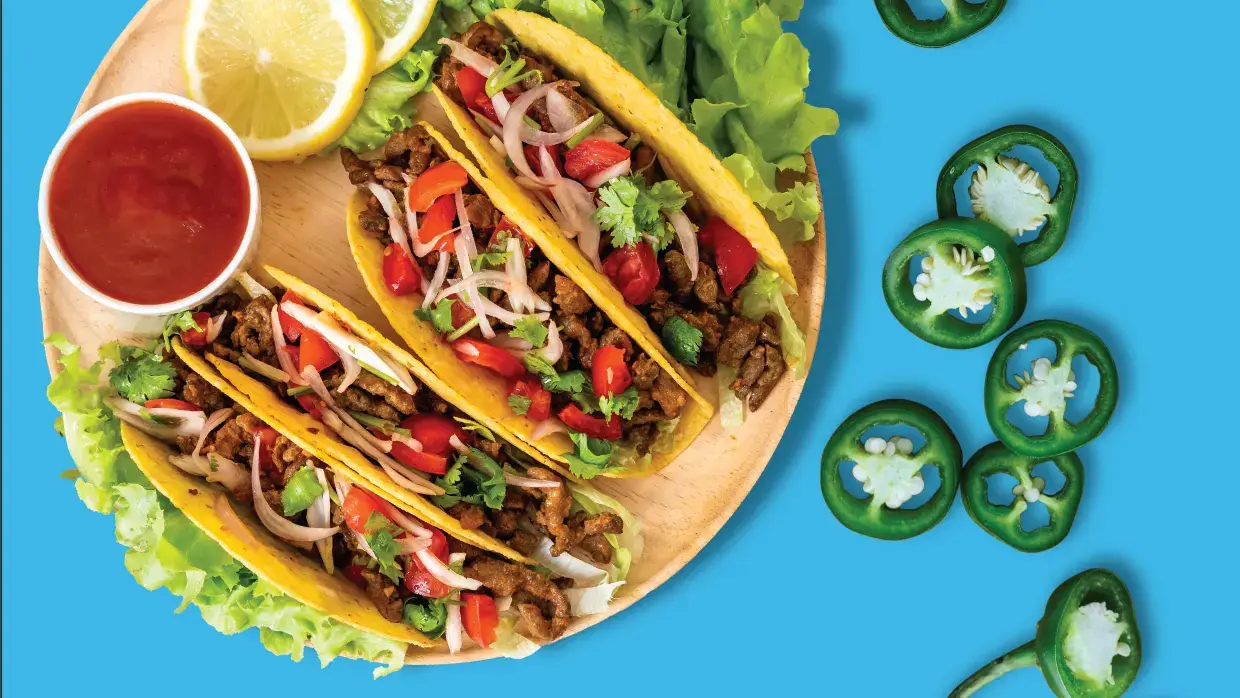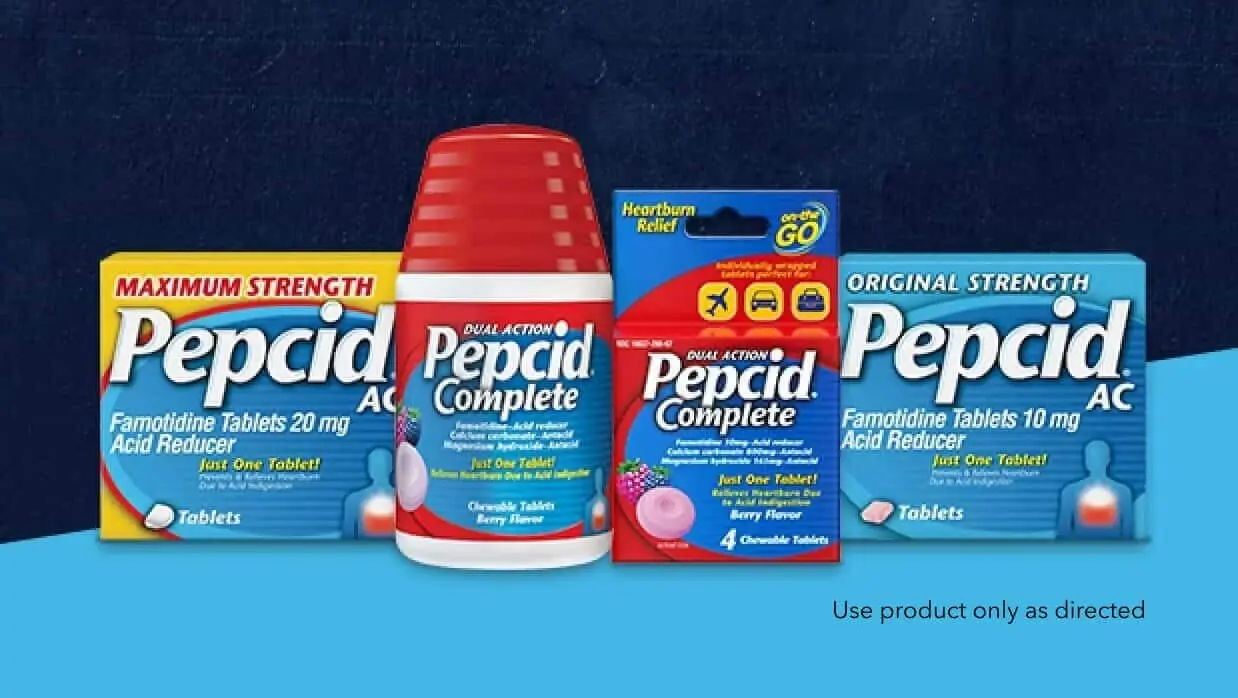Acid reflux develops when food, acid, and other stomach contents leak into your esophagus (the tube that connects your mouth to your stomach). This can lead to heartburn — a burning sensation in your chest. When acid reflux happens on an ongoing basis, doctors call it gastroesophageal reflux disease (GERD)1.
Certain foods can worsen acid reflux. Switching up what and how you eat can be an easy way to prevent heartburn. If you can learn to identify your trigger foods and make simple changes to your eating habits, you can get back to enjoying your meals.
Foods To Avoid: Common Triggers of Acid Reflux
Foods that trigger acid reflux and potential heartburn symptoms can differ from person to person. However, studies show that the worst foods for acid reflux tend to be2,3:
Spicy foods
Fatty or greasy foods
Chocolate
Mint
Acidic foods and drinks, such as citrus fruits or juices, tomatoes, garlic, and onions
Carbonated drinks like soda or seltzer
Caffeine drinks like coffee and tea
Alcohol
It is important to identify your own personal trigger foods. Try keeping a food diary for a couple of weeks. Note what you eat, when you eat, and how you feel in order to determine if you are experiencing acid reflux symptoms.
Make Changes To What You Eat
Avoid Fatty Foods and Simple Carbohydrates
The balance of fats, carbohydrates, and proteins in your meals is also key. Some research has found that people with acid reflux feel worse when they eat a high-fat diet4,5. Opt for lean meats, poultry, fish, or other protein sources and choose dishes that aren’t fried, greasy, buttery, or heavy in creamy sauces.
Several studies have also found a link between low-carb diets and improved acid reflux symptoms. In particular, the type of carbohydrate matters: carbs that the body digests quickly, like simple sugars and starch, are more likely to cause heartburn than are slowly-digested carbs like fiber2.
Add More Fiber to Your Diet
People with acid reflux have fewer symptoms when they eat fiber supplements or a high-fiber diet2. Fiber can be found in foods like6:
Vegetables
Fruits
Beans, lentils, and other legumes
Nuts and seeds
Whole grains, including oatmeal, brown rice, whole-wheat bread or pasta, and quinoa
Get Sauces on the Side
When eating out, you can control fat and calories by asking for sauces on the side. Plus, simple condiments like ketchup, mustard, and some dressings might trigger heartburn, so why not get them separate?
Add Flavor with Herbs
Herbs are a great way to add flavor to your food and replace the triggers in your diet. Try basil, oregano, thyme, rosemary, or cilantro.
Substitute Foods That Trigger Heartburn
Try | Instead of |
|---|---|
Baked, boiled or grilled | Fried |
Salad | Fries |
Water | Caffeinated sodas or citrus juices |
Broth based sauces | Tomato based sauces |
Fruit flavored candy or gum | Chocolate |
Make Changes To How You Eat
Eat Small or Regular Portions
Skip the Doubles, Triples, and Larges in favor of regular-size items. Think about how a triple-size burger means more calories and more fat, and is bound to set your heartburn aflame.
Smaller, More Frequent Meals Are Better
Instead of 3 large meals, eat smaller meals, more frequently. Not only does this put less pressure on your digestive system, but some people find this helps ease their heartburn.
Eat Slowly and Take Time to Chew
Relax and enjoy your meal! Eating slowly and taking time to chew your food gives your body time to properly begin digestion. And it means your stomach doesn’t have to work as hard to break down what you’ve eaten.
Don’t Overeat
Eating till you’re “stuffed” triggers heartburn. If that means sharing large portions with family and friends, then all the better!
Timing Matters
The timing of your meals matters, too. When you have late-night snacks soon before bed, your meal stays in your stomach longer, leading to increased stomach acid and a greater chance of heartburn symptoms2. Experts say that avoiding eating for three hours before bedtime could provide some relief7.
Can Certain Foods or Drinks Help Heartburn?
There’s no magical acid reflux, heartburn, or GERD diet that will instantly cure your symptoms. Your best bet is to avoid potential problem foods. Head over to our heartburn myths page to learn more about food and drinks that won’t actually help with heartburn.
That being said, following certain diets can help you stay away from foods more likely to aggravate symptoms. For example, the Mediterranean diet worked well to prevent GERD in one large study8. This diet emphasizes many of the foods that can help prevent heartburn, such as fruits, vegetables, and high-fiber ingredients.
Heartburn Treatment Options
Dietary modifications for heartburn may go a long way in preventing symptoms. If you are struggling to manage your diet, consult with a doctor or registered dietician for personalized advice.
For those times when diet changes just don’t cut it, you may need extra support. There are several medication options that may help:
Antacids neutralize acid in the stomach.
Proton pump inhibitors turn off the glands in the stomach that produce acid.
H2 blockers turn off H2 proteins, which act as switches that tell the stomach when to make more acid.
PEPCID AC® is an H2 blocker, while PEPCID COMPLETE® is a combination acid reducer and antacid. Both work fast to reduce the amount of acid in the stomach and relieve heartburn symptoms.
PEPCID® is not indicated for the treatment of GERD. Talk to your doctor if you experience heartburn symptoms for more than two weeks.
PEPCID® works fast to relieve heartburn and controls acid all day or all night.* If taken 15 to 60 minutes before a meal, it can even help to prevent heartburn.
*Based on 9-hour acid control studies during the day and 12-hour acid control studies during the night. acid control does not imply symptom relief.
References
Definition & Facts for GER & GERD. National Institute of Diabetes and Digestive and Kidney Diseases. Reviewed July 2020. Accessed December 13, 2021.
Newberry C, Lynch K. The role of diet in the development and management of gastroesophageal reflux disease: why we feel the burn. J Thorac Dis. 2019;11(Suppl 12):S1594-S1601.
Eating, Diet, & Nutrition for GER & GERD. National Institute of Diabetes and Digestive and Kidney Diseases. Reviewed July 2020. Accessed December 13, 2021.
Lechien JR, Bobin F, Muls V, et al. Patients with acid, high-fat and low-protein diet have higher laryngopharyngeal reflux episodes at the impedance-pH monitoring. Eur Arch Otorhinolaryngol. 2020;277(2):511-520.
Fan WJ, Hou YT, Sun XH, et al. Effect of high-fat, standard, and functional food meals on esophageal and gastric pH in patients with gastroesophageal reflux disease and healthy subjects. J Dig Dis. 2018;19(11):664-673.
High-fiber foods. MedlinePlus. Reviewed August 20, 2020. Accessed December 13, 2021.
Badillo R, Francis D. Diagnosis and treatment of gastroesophageal reflux disease. World J Gastrointest Pharmacol Ther. 2014;5(3):105-112.
Mone I, Kraja B, Bregu A, et al. Adherence to a predominantly Mediterranean diet decreases the risk of gastroesophageal reflux disease: a cross-sectional study in a South Eastern European population. Dis Esophagus. 2016;29(7):794-800.




